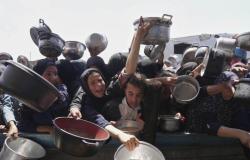The transatlantic gas pipeline project so much promoted by Morocco as a strategic response to the trans -Saharan gas pipeline carried by Algeria has just taken a hard blow. Morocco, which had multiplied triumphant announcements and declarations around this transatlantic gas pipeline project, is now faced with a much less brilliant reality: the final investment decision, initially scheduled for the second quarter of this year, has just been postponed in early 2026, according to information relayed by the new gallery. This postponement constitutes an alarm signal for analysts in the energy sector. Above all, it reveals a fundamental problem: the feasibility of the project seems to be more and more questioned, even though Morocco continued to highlight its transatlantic gas pipeline in the media, as if it were an infrastructure already in the execution phase.
Morocco dreamed great with this transatlantic gas pipeline. He promised to transport Nigerian gas through thirteen African countries to the Atlantic coast, with the ultimate objective of selling it to European markets. But what Morocco presents as a strategic project has been proven to be an economic mirage for the moment: the initial costs, which were 25 billion dollars, have already exploded at 30 billion, without any concrete infrastructure yet being born. Morocco’s transatlantic gas pipeline therefore begins to look more like a financial chasm than an energy opportunity. In a global context marked by inflation and the rise in raw material prices, Morocco will have a hard time convincing investors to bet on such an uncertain transatlantic gas pipeline.
The new platform highlights several other structural flaws in the Morocco project. First, the transatlantic gas pipeline suffers from a critical deficit in successful technical studies, in particular on the most sensitive routes of the route. Then, European partners have, to date, provided any firm commitment to the purchase of gas. This point is particularly problematic: without assured buyers, the transatlantic gas pipeline becomes an extremely risky bet, and few financial groups are ready to inject funds into a project that even its future customers hesitate to support.
This delay becomes even more significant when compared to the trans -Saharan project between Algeria, Niger and Nigeria. Unlike Morocco, which is content for the moment plans and announcements on its transatlantic gas pipeline, the trans -Saharan gas pipeline is advancing with concrete stages and solid institutional agreements. This makes the Algerian offer much more attractive for international investors, who prefer stable projects, in the realization phase, with guarantees of commercial outlets. Morocco, with its transatlantic gas pipeline, is thus in clear disadvantage in the face of a structured Algerian initiative, running, and already on the move.
The journey of the transatlantic pipeline imagined by Morocco, which crosses thirteen countries with different and sometimes contradictory regulations, is added to a legal and logistical complexity which makes the project even heavier. According to the new platform, such a level of complexity is rarely observed in the continent’s energy projects, which further accentuates the distrust of potential partners. Morocco is therefore taken in its own communication game. Because if the tensions between Algeria and certain neighboring states had enabled Morocco to relaunch its transatlantic gas pipeline on paper, the land quickly reminded him that the obstacles are numerous: political instability, administrative slowness, lack of regional coordination, lack of basic infrastructure.
The postponement of the investment decision up to 2026 is perhaps the implicit recognition that the project of the Transatlantic gas pipeline of Morocco is not ready to emerge. In the meantime, the challenges will accumulate: the costs will continue to increase, the markets will evolve, and the priorities of the countries crossed will be able to change. Morocco, despite its efforts to promote its transatlantic gas pipeline, must now face the test of reality. The energy sector has nothing to do with grandiloquent ads: it is infrastructure, purchasing contracts, technical guarantees and the financial flows that count. In the case of the transatlantic gas pipeline carried by Morocco, these elements are still very far from being united.







